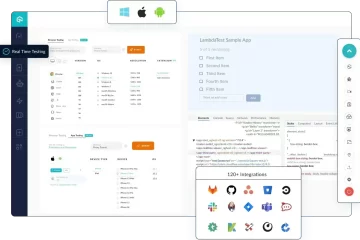Why Are Some VPNs Slower Than Others?

Like so many people on the Internet, you may want to use a VPN to hide your location from bad actors and encrypt your data from hackers. You may also want to use the technology to watch new content. For example, a top VPN can help you stream American Netflix content from Canada. But you may hesitate because you believe that VPNs are slower than your connection. If so, this blog is for you.
Table of Contents
What is a VPN?
As you probably know, the term VPN stands for Virtual Private Network. A VPN creates a secure tunnel between your computer and a VPN server. The data routed through this tunnel is encrypted. A VPN also hides your IP address, which a hacker can use to find your physical location. Instead of your own, you use the server’s IP address.
You can use another IP address to your advantage. For example, with a British IP address, you can watch entertainment content from the United States limited to American audiences.
Why Are Some VPNs Slower Than Others?
The processes that a VPN uses to ensure your security and privacy can slow down your Internet connection. However, the performance hit is barely noticeable with an excellent VPN. Here are a few reasons why some VPNs are slower than others:
- Overpopulation: VPN servers that have too many users are slower than others because of overpopulation.
- Lack of Servers: Always select a VPN service that offers many servers worldwide. A VPN with fewer servers may not have one close to you.
- Outdated Protocol: A VPN protocol affects the speed of your connection. The latest VPN protocols, like WireGuard, are secure yet significantly faster than ageing protocols like OpenVPN.
- Throttling: Many free VPNs deliberately slow down your connection to sell you upgrades later.
- Stealing: Some free VPNs were shamed for selling user bandwidth to others to make money. Not only does this adversely affect performance, but it’s dangerous.
- Malware: Plenty of free VPNs lack the technology to secure servers from malware. Even an adware infection that blasts your screen with pop-ups can slow down your Internet.
It’s a good idea to avoid free VPN services altogether. They’re slow because they lack cutting-edge technology or because their owners want to spy on you. Remember, many such free services are based in countries where privacy laws are relaxed, and the state can legally demand confidential data at a moment’s notice.
How Do I Make My VPN Faster?
Subscribe to a VPN service that uses the best and fastest technology and offers fast servers near you. When selecting a VPN server, try to pick a close one for the quickest speed. You can always use a different server if a close one is too slow.
You can run an Internet speed test to ensure that your VPN isn’t slowing down your connection too much. Simply run tests with and without your VPN and compare the results. Please remember that your VPN can’t be faster than the connection from your ISP.
Consider resetting your router, moving it closer to your computer, or using a cable instead of WiFi to boost your Internet speed. Alternatively, upgrade your connection to enjoy faster Internet.








